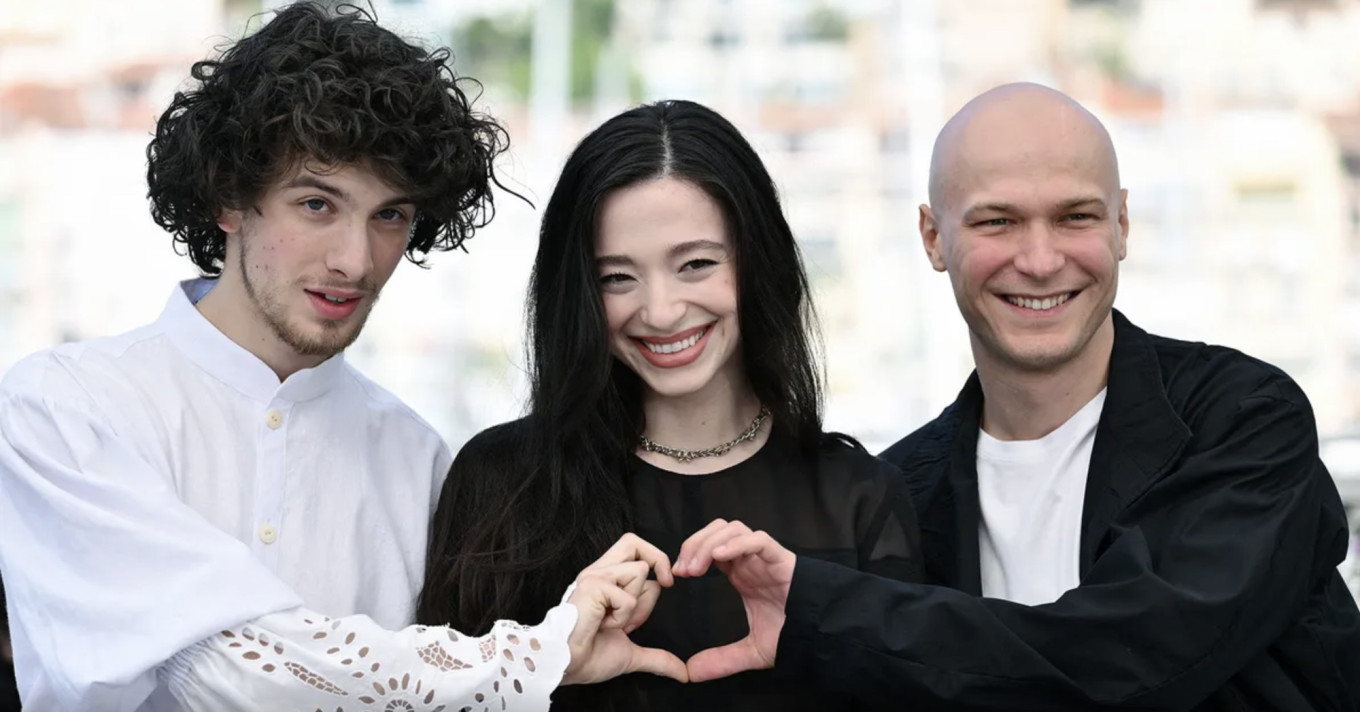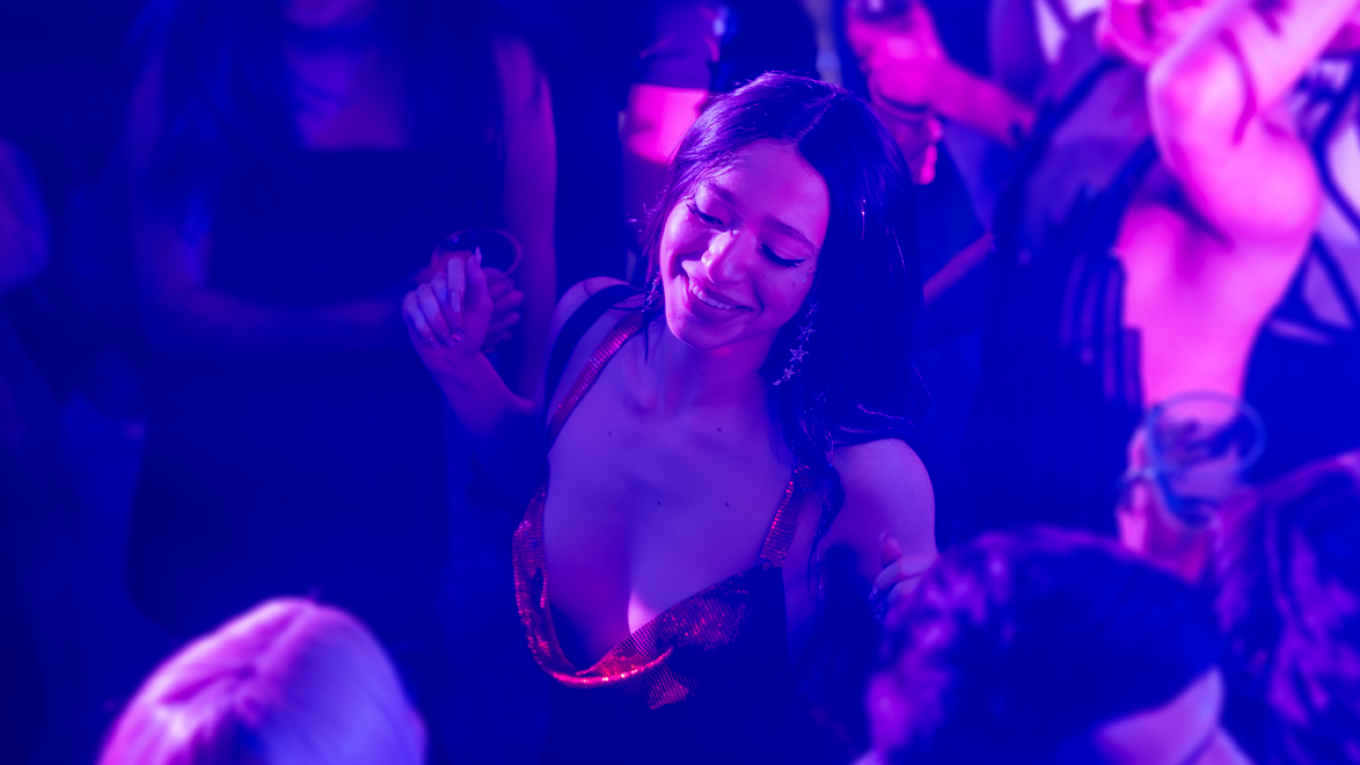This year the Palme D’Or — the highest award of the 77th International Cannes Film Festival — went to director Sean Baker’s “Anora,” an American-made, largely Russian-speaking film. This was a surprise on many counts, including the fact the main "Russian presence" at the festival was not “Limonov: The Ballad” by Russian filmmaker Kirill Serebrennikov.
What wasn’t a surprise was the controversy the decision stirred up among audiences and film critics.
“Anora,” the third feature film in Sean Baker's career, is a rather peculiar satirical and social interpretation of the Cinderella tale. The plot focuses on the romance between a stripper (played by Mikey Madison) and Ivan, the son of a Russian oligarch (played by Mark Eidelstein).
Since 2009, Baker wanted to make a film about the Russian community in Brighton Beach. He already knew some of the actors he would cast in “Anora,” including Karren Karagulian, who plays the hired hand of the oligarch’s parents. He had met Yuri Borisov at the Cannes Film Festival in 2021. Borisov introduced Mark Eidelstein to Baker. The screenplay was written in English and partially translated into Russian. According to the director: “My biggest credit in this film is my actors. They not only accurately conveyed my ideas but also helped create bright and realistic characters.”
In “Anora,” the young oligarch Ivan appears in a New York club and orders a Russian-speaking dancer for the evening. Anora — Ani — is introduced to him. Ani is Uzbek and knows a few words in Russian. The film somewhat resembles “Pretty Woman” from 1990 with Julia Roberts and Richard Gere. But unlike “Pretty Woman,” the protagonists in “Anora” head to Las Vegas, where they indulge in drugs, alcohol, visits to nightclubs and casual sex. The trip ends with marriage — "for love" according to Ani's vision or a playful joke according to Ivan. The outcome of this fairy tale will be disrupted by the boy’s furious parents (Darya Ekamasova and Alexei Serebryakov), who rush to America on their private jet to save their son from the cunning schemes of the sly prostitute.
The second part of the film is built on the contrast between the easygoing Anora and the grim Russian thug Igor (Yuri Borisov), who is called upon to tame the wayward stripper. Actor Borisov portrays the same unfathomable, unmoored Russian soul he played in “Compartment No. 6” by Finnish director Juho Kuosmanen that received the Grand Prix in 2021. Among the parental oligarch's staff are two Armenian brothers (Karren Karagulian and Vache Tovmasyan), hired to watch over the oligarch's offspring in America.

Although the characters speaking Russian come from different nations—Russians, Armenians, Uzbeks—they are all grouped under the singular term ‘Russians.’ The portrayal of the ‘mysterious Russian soul’ is not quite devoid of stereotypes—a penchant for drinking, impulsiveness, unexpected generosity coupled with unexplained cruelty. Neither is the film devoid of clichés about Russian crime and oligarchs. Baker conceived this film about Russian oligarchs a long time ago, and it might be viewed differently today, three years after Russia's invasion of Ukraine.
The awarding of the Palme D’Or, the main festival award in Cannes, sparked a wave of controversy among film critics and professionals. Some lamented that in a world “where one war follows another and thousands of people die daily” the main prize for a film about sex workers and the decadent lives of Russian oligarchs seemed inappropriate. Others were outraged that the winner was a film with Russian actors and about the Russian community; this seemed unethical given the ongoing war.
Yuri Borisov was remembered for his participation in patriotic films such as “Kalashnikov” and “Tank-34,” as well as his work with Nikita Mikhalkov's studio. Videos from the closing party of the festival spread across social media, showing Sean Baker and Mikey Madison dancing to a song by the group “Tatu,” which had been played at Baker's request and featured in the film.
Meanwhile, other people couldn’t understand how the film was made in the US, the "bastion of Russian cancel culture," especially since Russians were not portrayed in it in an exaggerated, caricatured, or critical way. They were just ordinary people—a diverse mix of villains and decent individuals.
The controversy was exacerbated when the day before the awards, Mohammad Rasoulof's film “The Seed of the Sacred Fig” depicting Iranians fighting against the political regime was screened in Cannes. The director chose to live in exile rather than face imprisonment. Despite being a notable piece of work, the film left the festival with only an honorable mention.
All of this fueled criticism of the president of the Cannes jury, Greta Gerwig. At a press conference, Gerwig described “Anora” as “truthful and unexpected” and compared it to comedies by Ernst Lubitsch. Some critics speculated Gerwig wanted to celebrate the achievements of American independent cinema, from which she herself originated, and also honor her compatriots who had not received prizes at this prestigious film festival for the past 13 years. Others noted that in her own films, including "Lady Bird" (2017) and "Little Women" (2019), Gerwig tells stories about young women striving for self-realization and independence.
But all this is speculation. The fact remains that a film with Russian actors received the top prize and the name of Sean Baker is now inscribed in global cinematic history. There appears to be no "cancel culture" of Russians in Cannes. And it seems that tales of enduring love, regardless of political context, continue to captivate audiences.
A Message from The Moscow Times:
Dear readers,
We are facing unprecedented challenges. Russia's Prosecutor General's Office has designated The Moscow Times as an "undesirable" organization, criminalizing our work and putting our staff at risk of prosecution. This follows our earlier unjust labeling as a "foreign agent."
These actions are direct attempts to silence independent journalism in Russia. The authorities claim our work "discredits the decisions of the Russian leadership." We see things differently: we strive to provide accurate, unbiased reporting on Russia.
We, the journalists of The Moscow Times, refuse to be silenced. But to continue our work, we need your help.
Your support, no matter how small, makes a world of difference. If you can, please support us monthly starting from just $2. It's quick to set up, and every contribution makes a significant impact.
By supporting The Moscow Times, you're defending open, independent journalism in the face of repression. Thank you for standing with us.
Remind me later.







